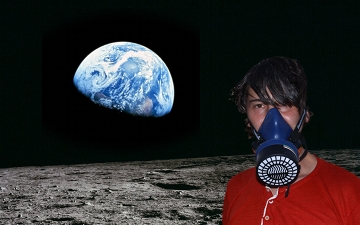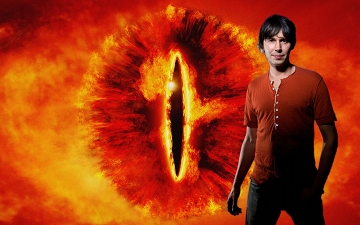Final Episode of BBC's "Wonders of the Universe" Show to Feature Most Expensive Visual Metaphors to Date
23rd March 2011You have seen him stand on top of a hundred different mountains in several different continents; you have seen him blow up a Brazilian prison block to explain a collapsing star, you have seen him go to the edge of space in a jet fighter and experience zero gravity by plummeting a jetliner towards the Earth. All in the effort to explain the nature of the Universe.
I am, of course, talking about none other than Professor Brian Cox, a man who inspired his own Twitter hashtag #briancoxknowseverything and has got every over 40 year old man wondering exactly what daily skin routine has enabled him to still get asked for ID to go on rollercoasters for people aged 12 years or older.
He is a man who has single handedly made being clever cool again, partly through an incredible sequences of CGI animations showing stars exploding but also by creating the biggest carbon footprint a single human has managed since Jeremy Clarkson attempted to drive to Jupiter in a Ford F-150 towing a cross channel ferry.
By travelling to every corner of the world, often visiting some countries for a single shot, Professor Brian Cox has managed to capture the public's imagination with the incredible visual metaphors the sweeping helicopter pans provide. However with his new series reaching its conclusion the final episode it seems he has saved the best until last:

Professor Brian Cox travelled to the moon just so the audience could appreciate just how grey it was compared to Earth.

In order to try and explain to people that gravity can reach you everywhere he travelled to Mordor to use the All Seeing Eye of Sauron

To demonstrate the destructive force when a black hole meets a super nova Professor Brian Cox travelled back in time to get a tank to fight a dinosaur
After doing Wonders of the Solar System and Wonders of the Universe, many wonder what Professor Cox will do next:
"He kind of dropped the ball a bit." Admitted BBC Producer Chuck Hankman, "There's nothing after Universe, he should have done Wonders of the Galaxy first. I know he's a genius, but he really didn't think that choice through. Mind you, I am sure he mentioned something about there being an infinite number of parallel universes, each where you made a different choice – so that means there is a parallel Universe out there where he did make 'Wonders of the Milky Way' first.
"I wish I lived in that Universe, I'd still have a job."
Topic: SCIENCE
Previous Story: What the new iPhone should have been called...
Next Story: NASA Loses $2.6 Million Deposit